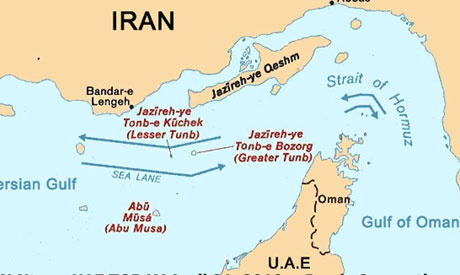A Review of the Legal Dimensions of Iran’s Sovereignty over the Three Islands

In an interview with ISNA, Pirouz Mojtahedzadeh remarked, “The issues that the UAE has mentioned considering its claim on the Tunb Islands and Abu Musa are nothing more than dated, baseless, and worthless claims.”
He said, “The UAE made this claim in 1992 (almost 20 years ago) and, as a follow-up, distributed a statement in the UN General Assembly in October of the same year claiming to possess these islands; the UAE condemned itself with its strong contradictions from the beginning and with the first statement, and informed the world of its erroneous claims ”
While mentioning that it is only the Al Nahyan family in Abu Dhabi that makes this claim and that none of the other seven Emirates do so, Mojtahedzadeh said, “At that time, while announcing that they possessed the Tunb Islands and Abu Musa, the UAE invited Iran to act based on international agreements regarding these islands. The mentioned international agreements were referring to the treaty that was signed between Iran and Sharjah in November 1971, under the supervision of the British Foreign Office. The UAE had not yet been established at that time; rather, it was established three days later.”
He went on to say, “On that date, all of the Emirates were under the sovereignty of Great Britain. This is why Iran believed with complete legal awareness that this treaty, which returned these islands to Iran, should be signed under the supervision of Britain and with its full participation. When the UAE invited Iran to respect its international agreements in its 1992 statement, they were speaking of agreements made in this treaty and Iran has respected these agreements, but also fully supports it; because this treaty officially and legally recognizes that these islands belong to Iran.”
The university professor went on to say, “This treaty was registered in the UN in the same year and four radical Arab countries of the time, comprising of Iraq, Libya, Algeria, and South Yemen, made a complaint to the UN in the Security Council. Kuwait and the UAE also participated in a session organized by the Security Council. After assessing the complaint, the Security Council found no legal or security facts in it, and rejected the complaint made by Arab countries regarding governance and possession of these islands, and closed the case. But today we don’t know which international tribunal the UAE is speaking of. It is completely clear that the statements made by the Al Nahyan family in this regard are totally irrelevant.”
He explained, “The UAE has tried, since that time, to internationalize this claim and has failed in every step.”
While mentioning that the UAE has tried on many occasions to make its claim to these islands international, Mojtahedzadeh stressed, “It can be said forcefully that the UAE has on not one single occasion been able to take even one step forward, because their argument is completely illegal. The UAE wants Iran to respect a treaty that emphasizes the sovereignty of Iran over the Tunb Islands and Abu Musa, and it then contradicts that same treaty in its statement and claims that these islands belong to the UAE.”
Regarding the governance of Iran over the northern half of Abu Musa and the governance of the UAE over the southern half of this island, Mojtahedzadeh further said, “It is mentioned in the six-Items Agreement of November 1971 that the Iranian flag will be flown on the northern half of Abu Musa Island and Iranian forces will be stationed there. The flag of Sharjah would also be flown over the Sharjah police station in the village of Abu Musa, meaning that the village of Sharjah would be under the sovereignty of Sharjah and the other parts would be governed by Iran. Non-expert sources have unfortunately taken this to mean the “joint governance” of the island, which is not the case; the island is fully under Iranian control regarding its strategic management. Iran accepted that the citizenship of the population of the village of Abu Musa would be with Sharjah and their travels to and from Sharjah would be problem-free. The Iranian Foreign Ministry issued an official statement at the same time as an annex to this treaty that says that we accept this treaty for the time being, but we reserve our right to take full control over the island whenever strategic conditions deem it necessary. However, Iran’s policy since then has been to not take this step.”

